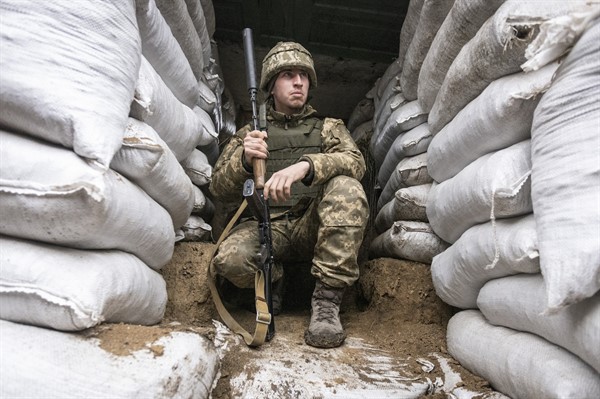Beyond its immediate implications for European security, the current crisis at the Ukraine-Russia border highlights the enduring importance of state sovereignty as an ordering principle in world politics, notwithstanding frequent claims that globalization has rendered it obsolete. It also exposes the tendency of governments to invoke, dismiss or reinterpret this bedrock principle to suit their situational needs. In fact, global stability now depends on whether the United States and European Union are able to reaffirm and defend the centrality of state sovereignty against a Russian attempt to dismiss it.
On one level, the Ukraine situation would seem to have turned long-standing Russian and Western rhetoric on sovereignty on its head. Russia, an erstwhile, self-styled champion of the Westphalian norm of non-interference within the United Nations, now has 100,000 troops poised to invade, seize territory from and perhaps extinguish the independence of its neighbor. Meanwhile, Western nations, which since the end of the Cold War have pioneered doctrines of “contingent” sovereignty—in which a state’s sponsorship of terrorism, commission of mass atrocities or participation in other bad behavior negates its authority—have become sovereignty hard-liners, characterizing Russia’s actions as a threat to world order and insisting on Ukraine’s absolute right to determine its own geopolitical alignment.
The reality, of course, is far more complex. The Kremlin’s ostensible defense of state sovereignty in the past has focused narrowly on protecting authoritarian regimes—including Russia’s own—from meddling Western efforts to promote human rights, democracy and open societies, as well as from military interventions. Russia has deflected, for instance, nearly all U.N. Security Council efforts to check Bashar al-Assad’s regime in Syria, which the Kremlin supports.

